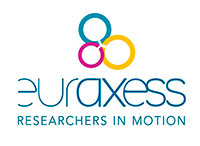Bolsa de TT-2 em Biologia Geral
TT-2 fellowship in General Biology
Nº: 1018
Área de conhecimento: Biologia Geral
Field of knowledge: General biology
Nº do processo FAPESP: 2013/50724-5
FAPESP process: 2013/50724-5
Título do projeto: Desenvolvimento de moléculas em modelo de ciência aberta
Project title: Supporting drug development through open-access research
Área de atuação: PCR para clonagem referente a proteínas quinases
Working area: PCR for protein kinase cloning and general lab work
Pesquisador responsável: Paulo Arruda
Principal investigator: Paulo Arruda
Unidade/Instituição: Structural Genomic Consortium
Unit/Instituition: Structural Genomic Consortium
Data limite para inscrições: 30/04/2016
Deadline for submissions: 2016-04-30
Publicado em: 27/01/2016
Publishing date: 2016-01-27
Localização: Av. André Tosello, 550, Campinas
Locale: Av. André Tosello, 550, Campinas
-
Resumo
Summary
TT-2: técnico de laboratório nível médio, biologia ou química.
Projeto internacional: Structural Genomics Consortium, desenvolvido na Unicamp.
Bolsa para auxiliar no laboratório e desenvolver projeto de PCR de várias construções de proteínas quinases.
Enviar link para CV lattes e dois parágrafos descrevendo por que se interessou pelo anúncio (sgc.unicamp.applications@gmail.com).
Início imediato.The >500 protein kinases in the human genome are key regulators of virtually every physiological process. Kinases can be targeted by highly potent and selective small molecules. However, despite their importance and suitability for drug discovery, most academic and pharmaceutical research has focused on a small fraction of kinases; most kinases are "under-explored". These under-explored kinases represent a rich source of new biology and are the focus of this proposal.
At SGC-UNICAMP, we propose to combine the strengths of academia and industry to generate selective small molecule inhibitors ("chemical probes") for under-explored kinases implicated in the regulation of RNA splicing and chromatin biology. There is emerging evidence linking these kinases to neurological diseases, angiogenesis, and cancer. To accomplish this, we will establish a "structure-guided medicinal chemistry" platform at UNICAMP, with funding and advice from our eight pharmaceutical partners and an external advisory board comprising leaders in chemical biology.
Our platform will generate chemical probes for each kinase, and characterize the probes in biochemical assays to establish potency and selectivity, and in cellular assays to demonstrate "on-target engagement" in cells. Once the chemical probes meet our stringent quality criteria, we will make them available to Brazilian and international scientists without restriction on use. The availability of these chemical probes will uncover new biological pathways and identify new opportunities for therapeutic intervention. By establishing this open access chemistry platform at UNICAMP, we hope to establish UNICAMP as one of the world centers of kinase chemical biology.
-
Enviar
Oportunidade - Oportunidades Abertas Open Opportunities
-
Fellowships Opportunities
